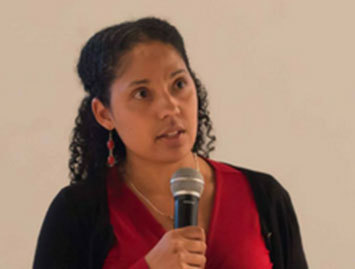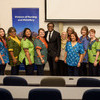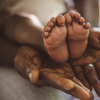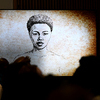Lydia Cairncross promoted to associate professor
31 March 2020 | Story Supplied. Photo Supplied. Read time 5 min.
Lydia Cairncross was promoted to associate professor in the Department of Surgery. She has been a staff member at the University of Cape Town (UCT) since 2010 and was a UCT student prior to that. Cairncross’s research and clinical work is centred on her specialisation as a surgeon in the areas of surgical endocrine conditions, soft tissue tumours and breast cancer.
Cairncross was born in Cape Town into a political family. Though her parents were professionals, her mother a doctor and her father an engineer, it was clear throughout her childhood that, for both of them, their identity as professionals was really secondary to activism. “They were committed to remaking the world into a more just and egalitarian place. I thus came to medicine via the lens of social justice and not the other way around,” Cairncross said.
In 1980 her family moved to the newly independent Zimbabwe and, she said, she has childhood memories of a house filled with anti-apartheid activists from all political tendencies, of a commitment to building Zimbabwe, and an identity of South Africa as home.
“I thus came to medicine via the lens of social justice and not the other way around.”
“We returned in 1990, just after the unbanning of political parties, and my high school and early medical school years of study took place against the backdrop of the volatile though exciting political times which led up to the 1994 elections.
“After graduation, [my] internship and community service, mostly served in the Eastern Cape, surgery was not a likely career choice for me. But, at the time of my specialisation, South Africa was in the midst of the HIV epidemic before the public provision of anti-retrovirals. Witnessing that epidemic unfold shook my faith in medicine. But in surgery I still saw the possibility of a doctor making a tangible difference.”
An activist at heart
Cairncross joined the Treatment Action Campaign (TAC) to help fight for anti-retrovirals and decided to become a surgeon. In TAC she witnessed first-hand the immense power of focused mobilisation coupled with widespread health literacy. So, in a sense, she said, her professional medical work and political health activist work ran as parallel though complementary paths.
“These layers of activity continued with my community work through the People’s Health Movement of South Africa on the social determinants of health and the National Health Insurance (NHI) proposal and, as a parallel, my specialisation, and then sub-specialisation as a surgeon in a tertiary hospital.”
As a teacher in the UCT community, politics and education came together during the #FeesMustFall movement where she instinctively connected with students in the call for free decolonised education and joined in many of the meetings, protests and activities during that intense time.
Applying for promotion
“In 2019 I somewhat reluctantly agreed to apply for promotion,” she recalled. “But, reflecting back, [I] have found the process strangely affirming. I was able to see that my different areas of work were recognised and even appreciated. These included my research and policy engagement in the formal academic space of cancer care, leadership work in the university and faculty, which had grown during the times of 2016 and 2017, my role as a teacher of surgery and formal and informal mentor, and of course, broader policy and advocacy work on health systems strengthening and NHI.”
Bridging the divide
Cairncross said she considers herself to be fortunate in finding a space in surgery that bridges the divide between health activism and her professional work. This, she noted, is best expressed in Global Surgery – a growing global health movement focusing on equity, access and quality in surgical care.
“This allows me, through my day job, to look at cancer surgery with a global lens.
“This lens has multiple aspects: it is global in the sense of looking beyond the clinics that I work in towards other clinical settings in South Africa and Africa. It is global in the sense of looking holistically at the cancer care pathway from symptom awareness to treatment and palliative care.
“And it is global because it involves all role players in the health team including surgeons, oncologists, nurses, community care workers, palliative care specialists and community activists.
“This exciting space is where I hope to dedicate some quality time over the next few years.”
 This work is licensed under a Creative Commons Attribution-NoDerivatives 4.0 International License.
This work is licensed under a Creative Commons Attribution-NoDerivatives 4.0 International License.
Please view the republishing articles page for more information.






